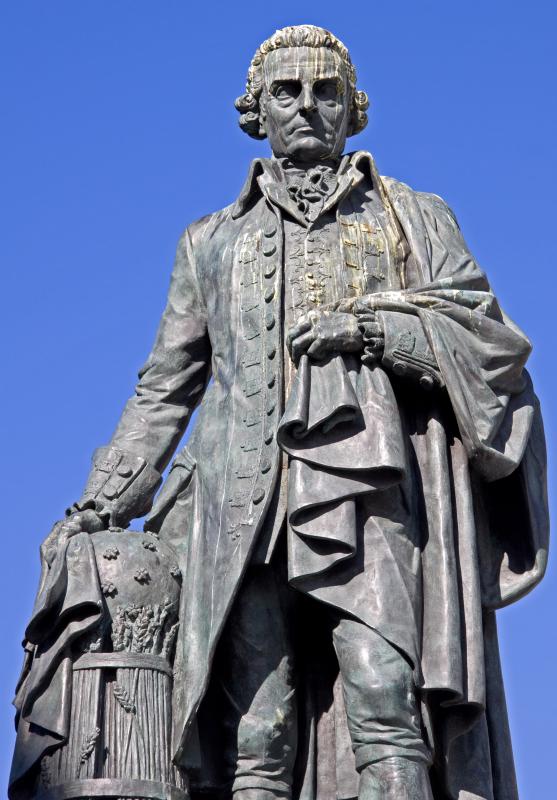At WiseGEEK, we're committed to delivering accurate, trustworthy information. Our expert-authored content is rigorously fact-checked and sourced from credible authorities. Discover how we uphold the highest standards in providing you with reliable knowledge.
What Is Classical Liberalism?
Classical liberalism is a political and economic philosophy that stresses the importance of individual liberty. It dates to the 18th century and originally was part of a reaction against the mercantilist and statist policies that were prevalent in many European nations. This version of liberalism stresses both individual liberties and protection of private property and free markets. Classical liberalism typically seeks to limit the power of government and to restrict the ability of groups of people to take collective action that might impinge on the rights of others.
Assumptions About Human Nature

This philosophy rests on a certain set of assumptions about human nature. Proponents of classical liberalism argue that individuals are rational actors but that the interests of each individual are limited to his or her own profit or safety. Larger societies were thought to function best when those individual interests were able to be expressed freely, without interference from state or religious organizations.
Relying on Market Forces
A belief in the importance of property, trade and the market is central to classical liberalism. This philosophy drew on the ideas of Scottish economist Adam Smith, who argued that the collective decisions made in a truly free market were the best possible expression of the needs and wishes of a society. Classical liberalism relies on these market forces to make most decisions about the allocation of resources within an economy.
The belief in the importance of a free market was a great departure from established practice. England had some tradition of free trade, but the economic philosophy of mercantilism dominated much of the continent of Europe. In mercantilism, the state directs economic activity for its own benefit. Individuals benefit — if they benefit at all — indirectly through the growth of state wealth and power. Classical liberalism rejected this philosophy and argued that the government should adopt a policy of leaving markets alone whenever possible.
Opposed to Social Programs
Believers in classical liberalism also dismissed the importance of many social institutions. Charity, in their view, was essentially a distortion of normal market forces and essentially self-defeating. According to proponents of this philosophy, social support networks that protected the lazy or incapable actually damaged the ability of the free market to allocate goods and services effectively.
Economic Liberty
Proponents of this system also argued passionately for economic liberty. They placed great value on other forms of liberty and attempted to secure individual freedom to speak, worship and assemble without government oversight or limitation. This put them at odds with many of the established powers.
Modern Liberalism
Modern liberals have often retained the belief in the importance of individual freedom but have come to question the role played by pure economic liberty. Classical liberalism served as a powerful defense against oppression by the state. Proponents of modern social liberalism have often worried that wealthy and powerful individuals might exercise a similarly dangerous ability to limit personal freedom and have sought to limit the role of wealth in the shaping of policy. They also often believe that some degree of economic equality is necessary for other freedoms and rights to have any real meaning.
AS FEATURED ON:
AS FEATURED ON:











Discuss this Article
Post your comments